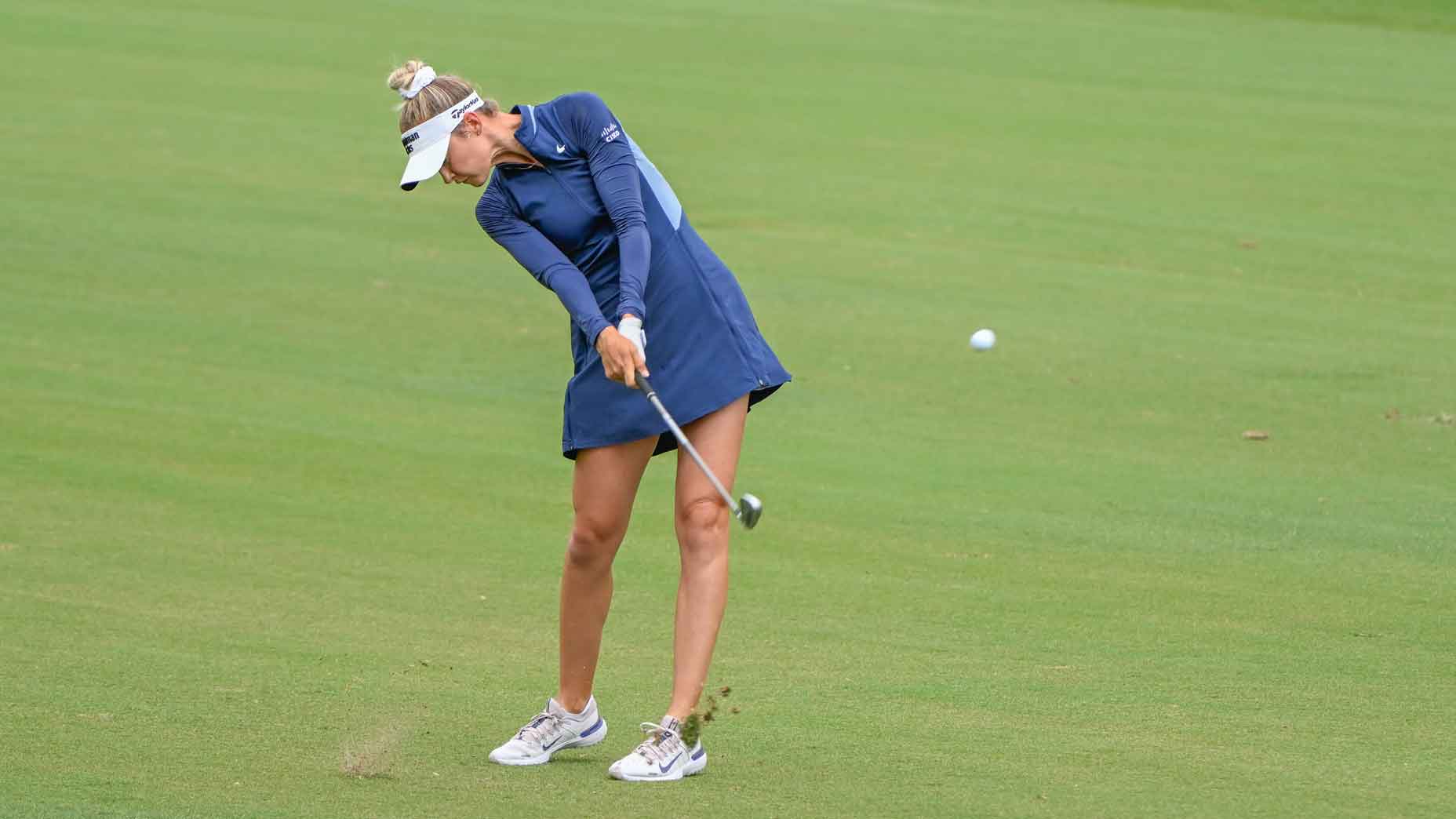There’s no denying that golf is hard. With seemingly endless shots and techniques to practice, from lag putting and delicate chips to half-pitches and 3-woods off tight lies, achieving any sense of mastery over even one portion of the game can often seem out of reach.
But that won’t stop us from trying. And that’s why I was curious to ask some of the game’s top instructors if they noticed any trends in what their students struggle with. Is there one part of the game, or a technique that proves more problematic for players than others? Instructor Stefanie Shaw, a teaching professional at Ocean Reef Golf Club in Key Largo, Fla., had an immediate answer from her roster of female students.
“They need to hit the ground and make a divot and make a mess,” Shaw said. “Not enough people are hitting the grass. You have to hit the ground to make the golf ball go up in the air.”
This concept can be hard to adopt, especially for players who have experience with racquet sports like tennis.
“By the time they are playing golf with me as a country club golfer, they’ve been playing tennis their whole life,” Shaw said. “All they know is how to go from low to high, whereas golf goes from high to low, straight down into the ground.”
The best way around this, says Shaw, is to get yourself into a digging mentality.
“Kellie Stenzel and I run women’s golf schools together,” she said. “And something we really enjoy doing is we have a very large group of women that are behind us and we’ll go and find a very perfect piece of grass and Kellie will take a swing and just take this giant divot. And you hear all of the women gasp and they’re just very upset at what we’ve done, but it’s what you have to get comfortable doing to move forward in the game.”
Another way to help yourself take a divot is to prepare your body with the correct posture.
“For women, our center of gravity in our hips,” Shaw said. “So the more that I bow forward, it gets my chest lower to the ground, gets the club lower to the ground, gets me in a better position to be able to hit the grass.”
Players can get comfortable with the feeling of making contact with the ground at impact by spending time in the bunker, too.
“Practicing bunker shots forces the club to hit the sand,” Shaw said. “And it’s not as scary or messy because you can just rake it up afterward.”
Ultimately, taking a divot is an important skill and can help players achieve desired trajectory and spin. Give Shaw’s tips a try, and get excited to send some dirt flying in your next round or practice session.
For more tips from Shaw, click here.
